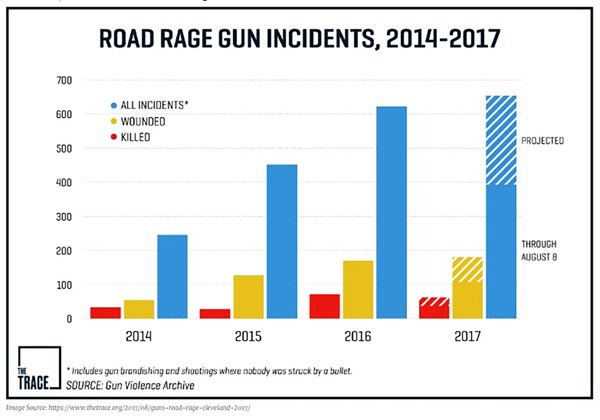Rage Against the Machine
There have been more than 20 reported attacks against Waymo’s self-driving fleet in Chandler, Ariz., since the company began testing the technology on public roads there two years ago.
#regulations
Education is key to Consumer Acceptance of Autonomous Cars
There have been more than 20 reported attacks against Waymo’s self-driving fleet in Chandler, Ariz., since the company began testing the technology on public roads there two years ago. The incidents range from people yelling and standing in front of vehicles to prevent them from moving to throwing rocks, slashing tires, brandishing guns and other weapons, and driving head-on toward the specially equipped Chrysler Pacifica hybrid minivans.

The instigators are easy to find because vehicle cameras are constantly recording footage that usually is clear enough to identify people and read license plates. But few police charges have been filed—in part because Waymo doesn’t want bad publicity or risk antagonizing more people.
The reasons for the attacks are varied. A man that stood in front of a vehicle claimed he was drunk, while others boasted that it was entertaining to “mess” with the vans or simply just didn’t want them operating in their neighborhood. Several people cited safety concerns: a married couple claimed a Waymo vehicle almost struck their child; and the man with the gun, who was arrested for aggravated assault and disorderly conduct, said he “despises” autonomous cars because of the accident involving an Uber test car that killed a pedestrian last year in Tempe, Ariz. The man, who is due to stand trial next month, reportedly suffers from dementia.
To date, such sabotaging appears to be relegated to Waymo’s fleet in Arizona. But this may be because the pilot program is the largest (involving more than 600 vehicles), longest-running and highest profile testing of autonomous vehicles in the U.S.
However, analysts warn that there will be further attacks as testing becomes more widespread. In addition to safety concerns and fear of the unknown, autonomous cars threaten to displace workers such as truckers, cab drivers and delivery personnel. But Waymo and others argue that autonomous vehicles could create new jobs, such as fleet dispatchers, technicians and customer service representatives.
As was the case in some of the Waymo incidents reported in Arizona, some people may harass self-driving cars and their drivers to have fun or take advantage of the vehicle’s strict adherence to laws and software settings that error on the side of ultra-conservative driving. This can lead to other motorists cutting off, assuming the right-of-way or otherwise disrespecting and bullying autonomous cars. The Arizona Republic chronicled such interactions by following and recording Waymo vans for several days, which is summarized in this video.

While computers in self-driving cars aren’t designed for aggressive behavior, their actions still may be infuriating—especially if another driver feels like he or she were cut off or has to wait as the autonomous car cautiously makes a left-hand turn or merges into traffic. Such actions could enrage a human driver and endanger backup drivers and passengers.
Waymo notes recent incidents only involved “a small fraction” of the more than 25,000 miles its self-driving vehicles log every day in Arizona. Moreover, the company says most Arizonans have been “welcoming and excited” by the potential for the technology to improve safety. Local police forces agree, calling the attacks isolated problems.
Waymo and its competitors continue to test and improve their autonomous driving systems. At the same time, they need to be more proactive to increase awareness and acceptance of the new technologies. Studies indicate that consumers continue to be leery about autonomous vehicles but that their comfort level increases the more they know about and are exposed to such technologies.
To this end, several industry groups have been created to develop standards for autonomous cars and help inform consumers and policymakers about the technology. Earlier this week, a group of 24 carmakers, suppliers, consumer groups, trade associations and other constituents formed the Partners for Automated Vehicle Education (PAVE) coalition. The group includes AAA, Audi, Aurora, Cruise, Daimler, General Motors, Inrix, Mobileye, Nvidia, SAE, Toyota, Volkswagen, Waymo, Zoox, the National Safety Council and National Council on Aging.
PAVE aims “to help Americans better understand the potential and promise” of advanced driver assist systems and self-driving cars. This includes developing trust among consumers and dispelling confusion and misunderstanding about the technology, says Deborah Hersman, president and CEO of the National Safety Council and co-chairperson of PAVE.
PAVE plans to hold events across the country to introduce the technology to consumers and policymakers, hold educational workshops aimed at federal, state and local officials, and develop educational materials to distribute to dealers and service centers. Hands-on workshops will be held in partnership with organizations such as SAE and Stanford University. Information also will be available on PAVE’s website.RELATED CONTENT
-
China Targets 7 Million Annual NEV Sales by 2025
The Chinese government is targeting annual sales of electric and plug-in cars at 7 million units by 2025—nine times last year’s volume.
-
Porsche Racing to the Future
Porsche is part of VW Group and it is one of the companies that is involved in putting vehicles on the U.S. market with diesel engines in violation of EPA emissions regulations, specifically model year 2013–2016 Porsche Cayenne Diesel 3.0-liter V6 models.
-
Toyota Targets 2021 Launch for V2V Tech in U.S.
Toyota Motor Corp. plans to expand its vehicle-to-vehicle communication technology to the U.S. by 2021 and offer it across most Toyota and Lexus models in the country by mid-decade.








